Every single day, 188,912 Bitcoin transactions are made across the globe. With all that digital currency flying through the air, security and accountability are obviously a major concern. Even though these transactions - and billions of others like them - happen online, they require real-world experts to build and manage the frameworks and exchanges that make them possible. That's where blockchain comes in.
To keep up with the growing demand for secure, traceable online transactions, blockchain companies are raising capital, expanding their reach and hiring up. To help you better understand the blockchain industry and how to recruit for it, we've created this guide that incorporates expert research and predictions along with some of our own findings on the blockchain job market.
We’ll end this guide with a few examples of how real companies are recruiting talent. Feel free to click the links below to skip ahead or keep on reading.
See how your employer brand is performing in AI tools like ChatGPT and Google.
Table of Contents
- Blockchain Industry Breakdown
- The Most In-Demand Roles in Blockchain
- 11 Blockchain Recruitment Examples
Blockchain Industry Breakdown
Sure, you’ve heard of blockchain, but does anyone really use it? Actually, nearly 40 million people across the planet are already tapping into the technology, and that number is only getting bigger. And if the industry is growing, that means companies are growing and in need of new talent to fill the gaps. To get a better sense of where the industry is at and what's trending, we’ve broken down its different sectors, funding situation and job market.
BLOCKCHAIN SERVES SEVERAL MARKETS
Even though blockchain technology can be applied to nearly any industry, it's a particularly popular transaction method among financial institutions, especially for popular forms of cryptocurrency. As you can see in this CB Insights breakdown, the majority of Bitcoin and blockchain startups fall under Exchanges & Cryptocurrency Trading, Capital Markets & Financial Services and Wallets & Money Services.
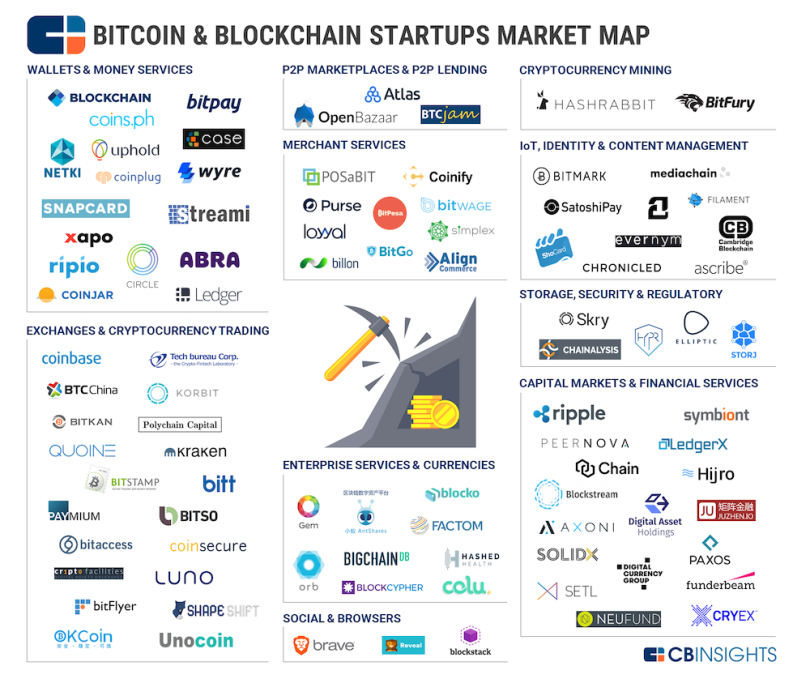
While blockchain is heavily rooted in finance, it’s also disrupting a number of other industries as well:
-
44% of gamers utilize blockchain to purchase or trade items in a game.
-
It’s predicted that 55% of commercial healthcare services will utilize blockchain by 2025.
-
In 2018, $379M was invested in Blockchain technology by the distribution and services sector.
-
In 2018, $334M was allocated for Blockchain technology by the manufacturing and resources sector.
-
Even charities and nonprofits are now accepting Blockchain currencies.
BLOCKCHAIN STARTS TO MATURE
Since 2012, when 100% of blockchain funding originated from Seed and Angel investors, the market has rapidly matured. By 2017, the percent of Seed and Angel investors was cut in half, with significantly more Series B and C deals.
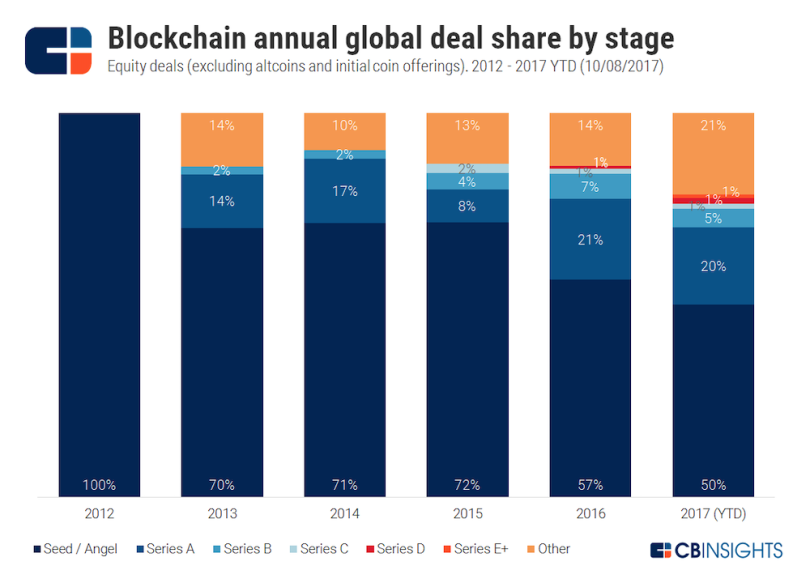
Over the past few years, funds started narrowing their focus, providing more money to fewer companies — meaning those companies are growing and therefore hiring. And it’s only going to keep growing. By 2024, the global blockchain tech market is predicted to reach $20B in revenue.
THE BLOCKCHAIN JOB MARKET
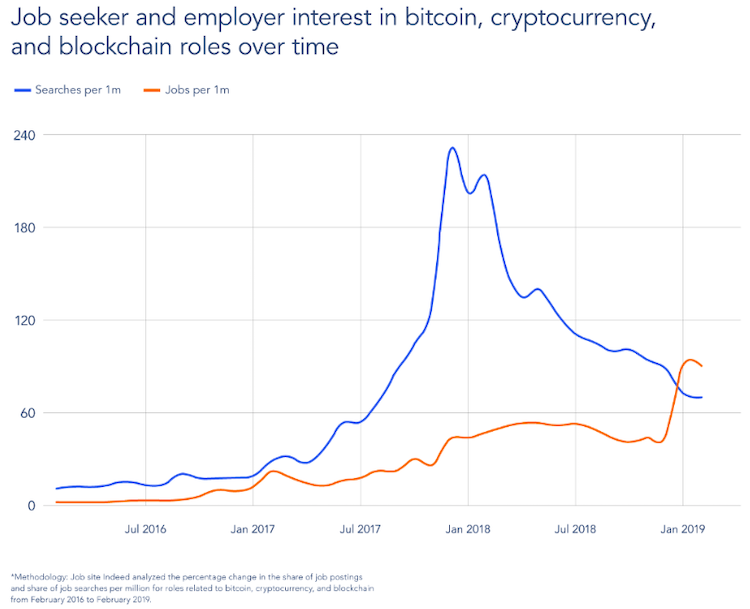
As the blockchain industry continues to grow, it's capturing the attention of talented professionals from a variety of backgrounds. Indeed found that in January 2018, there was a massive spike in candidates searching for roles in Bitcoin, cryptocurrency and blockchain.
Compared to the jobs posted at the time, there simply weren’t enough open roles to fill the job seekers inquiries. However, that’s likely going to change in the near future, as blockchain companies continue to mature and gain traction in a range of industries.
The Most In-Demand Roles in Blockchain

The prior section should have helped you better understand where the blockchain industry is moving. Now we’re going to look at the most in-demand roles in blockchain across the industry to help you determine how and where you want to allocate resources for recruiting candidates.
After delving into research from from our seven local communities, we found four roles that accounted for 82% of all open positions in the industry: software engineering, marketing, operations and finance. Within each section we’ll give a brief overview of the skills that are most popular within the role where applicable.
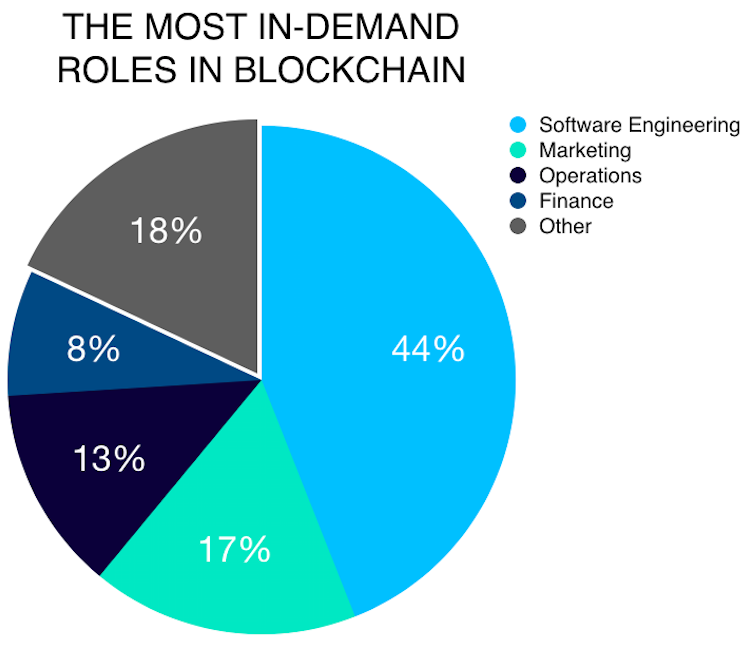
Software Engineering
Blockchain is a seriously complicated technology, and many companies are desperate to hire experts knowledgeable on this fairly new subject. Not surprisingly, software engineering roles accounted for about 44% of all open positions in blockchain at the time of publication. There are a number of different types of software engineers out there, and they all have their own strengths and specializations. When it comes to blockchain, the most in-demand coding languages and skill sets are:
-
Front End - 24%
-
Javascript - 13%
-
Java - 13%
-
Golang - 7%
Marketing
Open marketing roles account for 17% of all blockchain positions. Because blockchain is such a new industry and most people don’t entirely understand what it is or how the technology works, it’s crucial to have an excellent marketing team that can convey your message to investors, customers and users.
Operations
Operations is the third most in-demand role in Blockchain, accounting for roughly 13% of all open positions. Within Operations, the most needed skill sets are operations management and information technology (IT).
-
Management - 31%
-
IT - 31%
-
Customer Support - 15%
-
Customer Success - 15%
Finance
Considering this industry is heavily rooted in financial services, it makes sense that 8% of open blockchain roles are in the financial realm. These experts are able to help marketing and operations teams, who may not have a background in finance or blockchain, communicate with the right language and gain a better, more technical understanding of their products and services.
11 Blockchain Recruitment Examples
Knowing who to hire is one challenge. Knowing where and how to attract and hire top talent is an entirely different ball game. To help you determine where to spend your time and energy, we’ve found 11 real examples from blockchain companies utilizing a variety of recruitment strategies that you can learn from. Test out some of these ideas and brainstorm your own, and you’ll be well on your way to hiring an exceptional team.
Airfox Works Together In and Outside of the Office
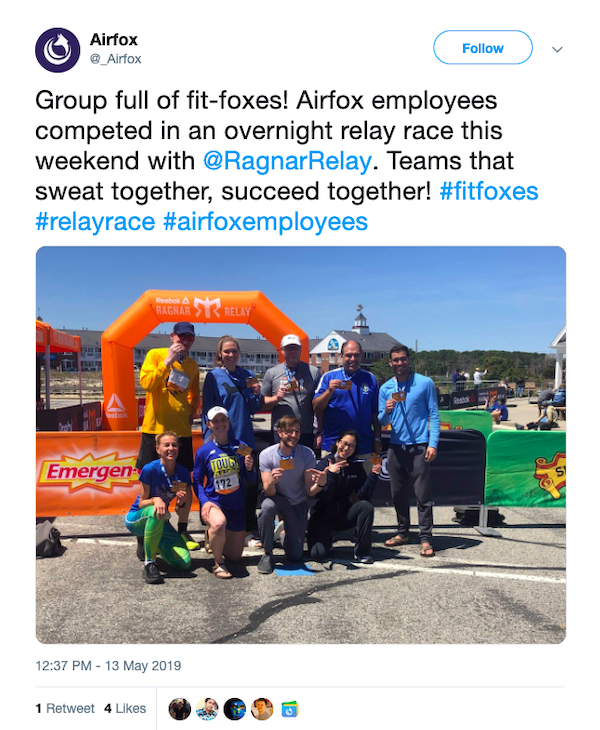
The team at Airfox is a close-knit group of people who enjoy spending time and collaborating together both in and outside the office. To provide candidates a little bit of insight into their unique culture, they share team bonding events like this on one their Twitter account.
Circle Builds a Talent Community
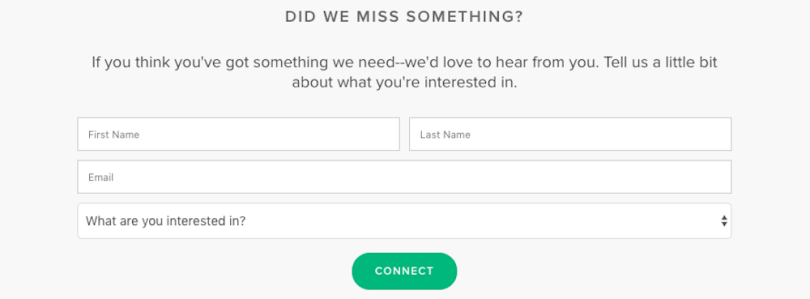
If you don’t already have a process for building a talent community, you’re really missing out. On Circle’s career page, they encourage candidates to share their name, email and area of interest so that when a role opens up that they would be interested in, that candidate will be the first to know.
DreamTeam Helps Candidates Learn Their History and Mission
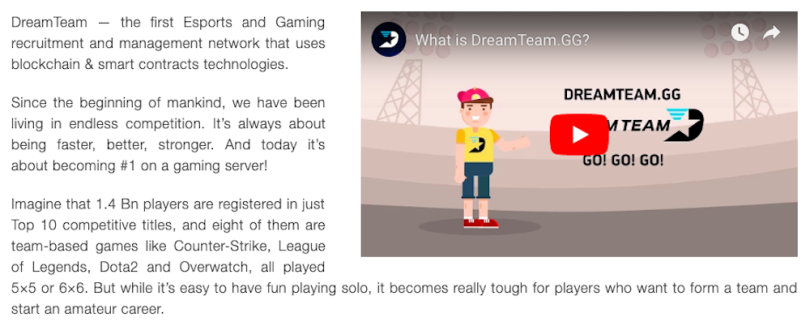
The DreamTeam’s career page provides candidates with a wealth of information they need to better understand the business and determine early on if they have an interest in a career there. No matter where you click on their careers page, this video follows candidates from page to page to ensure they know the basics of what DreamTeam does before they start apply for a job.
FourKites Shares the Challenges and Triumphs of Tapping into a New, yet old, Industry

When you’re a new technology, like blockchain, tapping into an old-school industry, there are a lot of unforeseen challenges that come with the process. FourKites is excited to share what it’s really like to work on their team, including both the challenging aspects and the new and exciting opportunities.
Gemini Brags About Their Latest Greatest Hires

When Gemini brought on the newest member of their client services team, they wrote a brief article on Medium. In the article they connect the importance of building a world-class marketplace and client services team by hiring the right person.
They continue to share their excitement in hiring this person with information about their background and expertise that landed them the job. At the end of the article, they call out the offices that are hiring and provide a clickable link for interested candidates to check out their current open roles.
ITExpertsIndya Has a One-Size-Fits-All Job Application
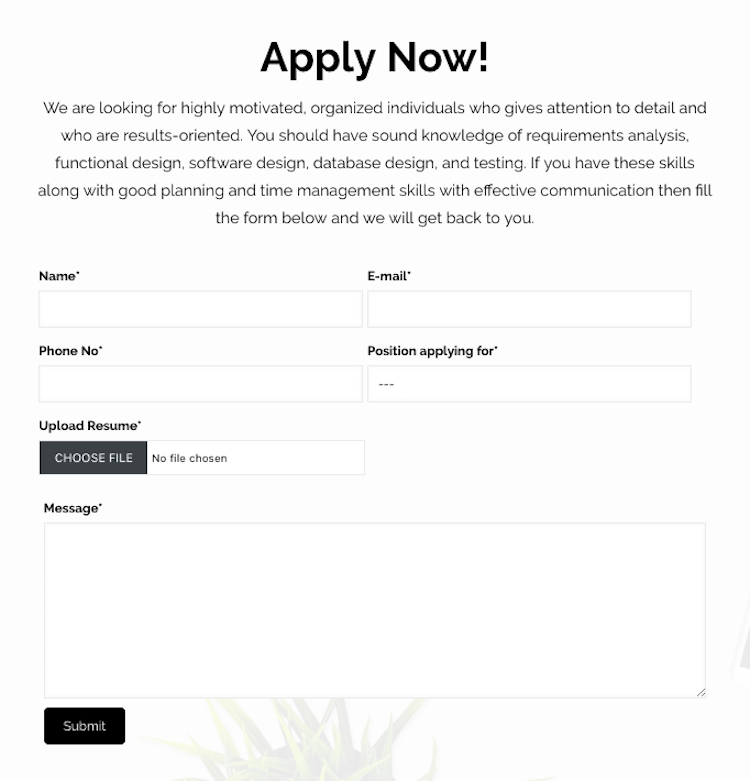
Instead of creating individual job descriptions for each of their open roles, ITExpertsIndya created this simple one-size-fits-all job application. Anyone who is interested in their company as an employer simply fills out their name, email, phone number, selects from seven different roles and submits a resume.
This is an interesting tactic that allows the company to determine if someone’s skills are right for the job, rather than candidates determining from a job description whether or not they are qualified for a job. This method may help people who are less likely to apply simply because they don't meet 100% of the job application requirements.
Paxos Prepares Candidates For the Hiring Process
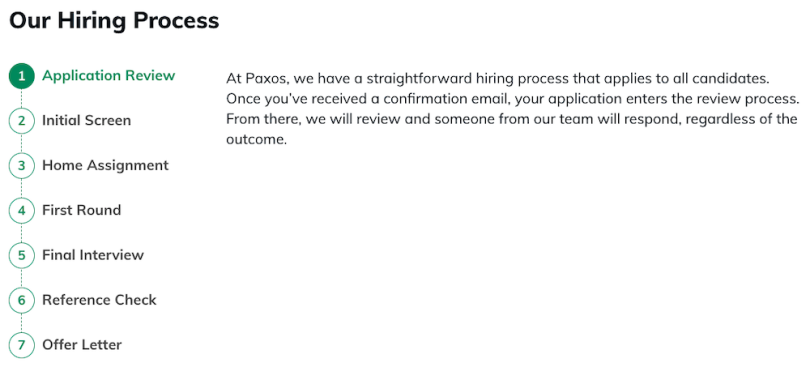
Applying for a new job can be quite intimidating. To help ease the nerves and prepare candidates for what to expect, Paxos lays out their entire hiring process step-by-step for anyone who lands on their careers page. This also helps decrease the number of questions recruiters receive about their hiring process.
Pixelplex Repurposes Job Descriptions on Social

There are a number of different job boards online, but most wouldn’t think of Instagram as one of them. Pixelplex utilizes the platform to share each new open role with these cheeky photos of a Lego person, the job title and in the caption, they include the entire job description. While many social media platforms have a short character cap for posts, Instagram is unique in that it allows for longer form written content, making it a great place to post a job description.
Spring Labs Knows What Candidates Really Care About
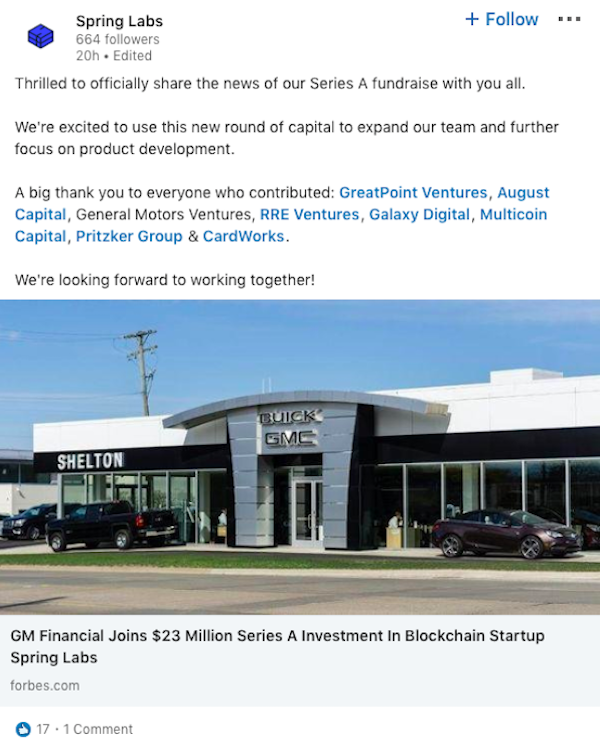
What do candidates really care about? Job security and working for a well-funded, secure company. When Spring Labs closed their latest round of funding, they were sure to share it on LinkedIn. Not only that, but they mention how excited they are to expand their team — a hint-hint, nudge-nudge for candidates interested in the company as a future employer.
TFT Allows Their Employees to do the Talking
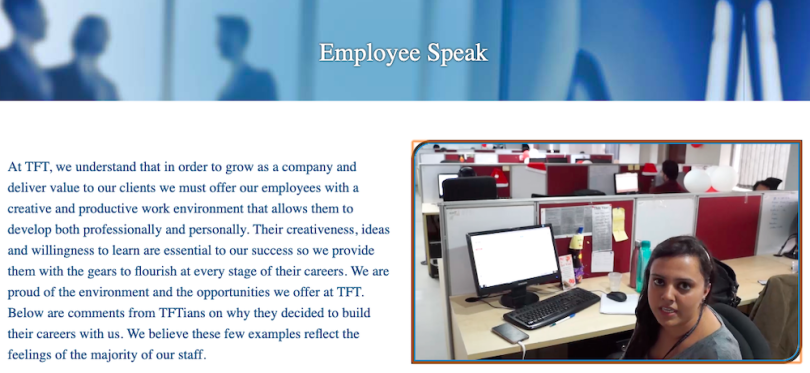
In addition to their careers page, Think Future Technologies created a separate page called Employee Speak that shares testimonials and reasons why employees decided to grow their career at the company. Considering employee testimonials are the second most important piece of content candidates look for, making a separate page dedicated to this information is a smart recruitment strategy.
Zayo Recruits Veterans
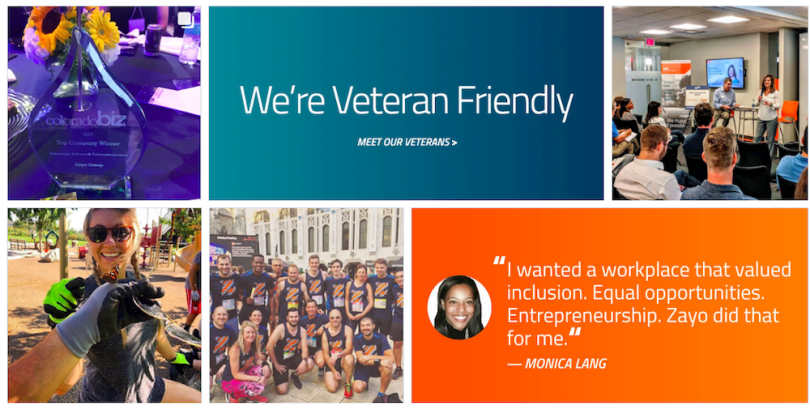
While all equal opportunity employers welcome Veterans to apply for open roles, Zayo sincerely calls them out on the company’s career page. They even have a page dedicated to Veterans, providing them with information on why they should apply to the company along with quotes from other Veterans who currently work there.





